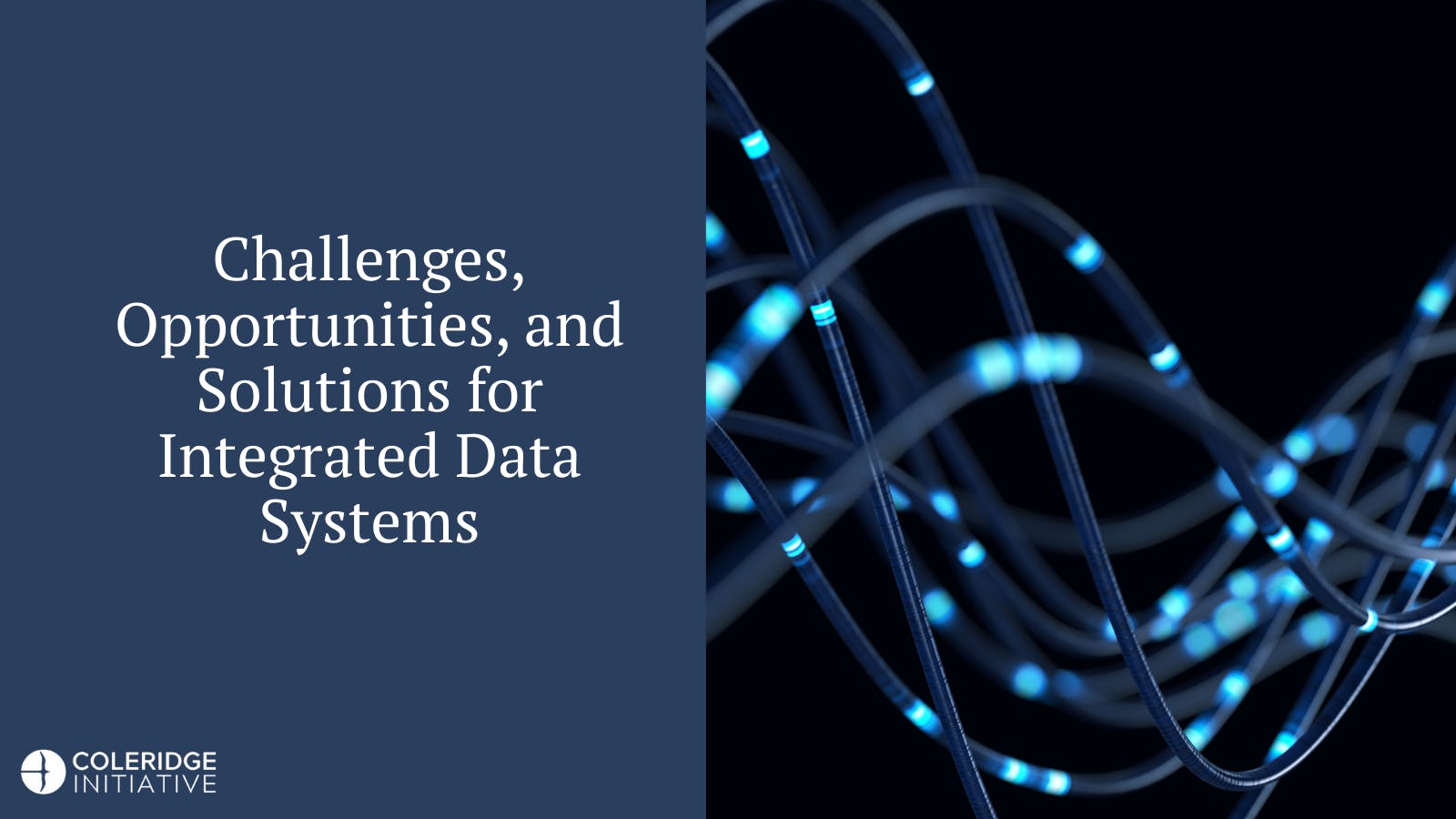
02 Sep 2025
Challenges, Opportunities, and Solutions for Integrated Data Systems
Challenges, Opportunities, and Solutions for Integrated Data Systems
Adaptable Road Map to Data Integration and Use to Support K-12 Education and Beyond
Coleridge is proud to announce the release of a new white paper, Challenges, Opportunities, and Solutions for Integrated Data Systems: An Adaptable Roadmap to Data Integration and Use to Support K-12 Education and Beyond. Developed with the support of the Walton Family Foundation, the paper provides a comprehensive look at how states and agencies can overcome persistent data silos and build sustainable, secure systems that better inform policy and practice across the full education and workforce continuum.
The white paper underscores a simple but profound truth: education is not a single system, but many. Early childhood, K-12, higher education, workforce programs, and social services each influence student success, yet they often operate in isolation. Integrated data systems allow policymakers and practitioners to connect the dots, revealing how interventions and investments shape outcomes and impact across time. By breaking down silos, these systems provide leaders with the insights they need to evaluate what works, make life-altering decisions earlier, and align education more effectively with labor market demand.
For policymakers, the stakes are high. Decisions about funding, community program design, and accountability are often made without a clear and full picture of how people actually move through education and into the workforce. The paper shows how Statewide Longitudinal Data Systems (SLDSs) and broader P20W systems that track from kindergarten through workforce can fill that gap, providing evidence on critical questions. As an example, these systems help state agencies and their partners answer whether college-readiness programs are leading to higher enrollment or do early childhood investments boost long-term academic performance.
Equally important are the safeguards and structures that make these systems durable and applicable across agencies. The paper highlights the importance of adopting common standards such as the Common Education Data Standards (CEDS) and frameworks like Ed-Fi, while also prioritizing privacy, security, and stakeholder trust. It emphasizes that sustainability must be built in from the start, with stable funding, modular technical design, and governance that can adapt to evolving needs. These considerations ensure that systems not only launch successfully but also grow and remain relevant over time.
At its core, this paper is about impact. Integrated data systems enable leaders across education and workforce pipelines to make better choices that improve outcomes for individuals and communities. From identifying students in need of timely interventions to ensuring training programs meet employer demand, these systems give policymakers the tools they need to act with confidence.